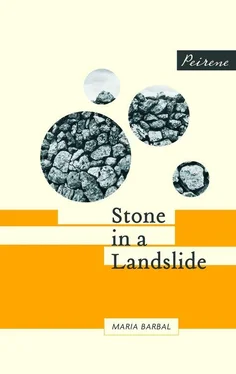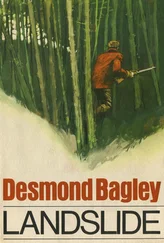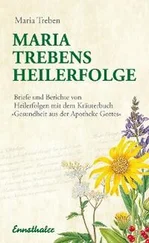As they say, sometimes sorrow marks a family for her own. Some months later, in March 1931, the news arrived that my mother had died. Jaume wanted to go with me to Ermita, but Tia wouldn’t allow it. After all she was my mother’s sister. We both hurried there.
I found my father and brothers and sisters in floods of tears. I couldn’t accept that I hadn’t been able to say goodbye to the woman who had brought me into the world. Just then I thought I understood my husband when he said we were so poor… and that it cost so much to go from one place to the other that when we arrived we were often too late.
Nothing and no one could console me. My father had aged a lot since Angeleta’s baptism. My brothers and sisters were like distant relatives to me. I’d stopped being from there and I belonged elsewhere. At the same time, I couldn’t help thinking about my life since I’d left my parents’ house. The days seemed to have flown by, and I wondered if maybe my mother had never got over the pain of giving away a daughter. But that was the past and life went on. When we left Ermita, my eyes were numb from crying and my head heavy, and I thought, Who knows whether I’ll ever come back, and that I’d lost the deepest of my roots there.
In Pallarès, the house, shrouded in mourning, had become quieter. The noise and uproar of my daughters seemed less jarring, perhaps because they were growing up or because I was thinking deeply and didn’t hear it.
But a strange happiness was to enter our house very soon, announced by Jaume. King Alfonso XIII had left the country and the Republic had just been proclaimed. I didn’t see this as any great happiness to speak of, but Jaume’s joy flowed from his lips and hands and it was contagious. He grabbed me and took me out onto the street where people had gathered to talk. It was still cool but a sleepy spring sun was shining. I was blinded by so much light and overwhelmed by the sound of the word on everyone’s lips — Republic.
A rumour went round that someone would come up from Montsent that evening to the school to explain what this change meant. The next day Tia told me that as she went into the school the Augusts were coming out, swearing and purple with rage. She was just in time to see Jaume jumping down from a table with the King’s portrait in his hand. All that was left on the wall was a light patch and a nail.
In spring and autumn, when it has rained enough and the sun has warmed the earth, two types of mushrooms that are good to eat grow in rows in the meadows.
One sort is earth-coloured and delicate-looking, with a long straight stalk and a cap with dense gills underneath. The other is white and sprawling. It has a short thick stalk and the gills are a brownish colour. Carreretes and moixarrons are highly prized for eating raw, but both are also left to dry in sieves and are a precious resource in winter when there are none. Dried, they lose much of their smell and weight but just a handful gives an excellent flavour to rice or any rabbit, chicken or beef stew.
The meadows near the village yielded mushrooms, carreretes mostly, but not in great quantities. When we went to graze or divert the water from one part of the meadow to another, everyone would gather the ones they found in their meadows. But to have a year-round supply it was necessary to do a day trip.
That May of 1931 a fair-sized group of women from Pallarès gathered to pick carreretes and moixarrons on the mountain. On the way, we collected Jaume’s sister-in-law, Agnès, and two or three other young women from Sarri came with us. Jaume had let them know we would be going that Wednesday. There were around ten or eleven of us.
I had met Delina beforehand and we brought two baskets each. Would we fill them? In the smallest we were carrying the food. Bread and ham. And we would find lots of water.
We left at daybreak and at the beginning we were as excited as little girls because we had finally enough time to talk to each other properly. When the going got steep, though, we held our tongues to save our breath.
I liked this outing. I was in the meadows, following the darker grass of the tracks thinking about nothing except finding a big patch of mushrooms and filling my basket. The walk was hard but, after going up so far, it was easy enough to walk down again. From where we were you could see all the villages as if they were close by, with the black slates of the roofs and the occasional plume of smoke revealing signs of life. We stopped at the top to eat, red-faced and with a light wind on our necks, before we started the painstaking search for mushrooms. Who would want to serve the stew of the Festa Major without carreretes ? For those who really knew how to enjoy mushrooms the moixarrons were the great prize, and we would make omelettes with them raw.
Elvira had wanted to come with me, but I told her to stay and help at home. She was becoming a young woman now and only her wretched jealousy marred her sweetness. When Delina and I were talking about her, Delina told me something that shocked me. Before I’d had Angeleta, she’d heard how the women who chatted in the plaza — Mrs Sebastià, Mrs August, old lady Jou, the baker’s wife and others — used to tell the children that if they didn’t have siblings they should make the most of it because when one did come along, boy or girl, they wouldn’t be laughing much. She’d heard comments like this many times. And much worse: that they wouldn’t be loved any more, their mothers would only care about the baby, and that the best they could hope for was only having to share everything with their new brother or sister.
All this left me very upset and I felt for Elvira. If I’d known what they’d said, she would have come with me that day even though I felt such a long walk wasn’t good for a young girl like her. I couldn’t understand those people. Why did they do it?
Luckily we found mushrooms everywhere. If we hadn’t, thinking about what Delina had told me might have made me really sick at heart. But there were mushrooms. It was as we’d hoped: it had rained, there had been sun and the earth was full and gave up its fruit. Tia would be happy. Seeing the moixarrons and carreretes poking their noses out of the grass — what a joy!
Summer was coming, bringing work that began unexpectedly but kept you breathlessly busy until the end of August. Then a few thunderstorms would sweep away the heat, and afterwards it would only be really hot for a moment or two at midday if there were no clouds covering the sun.
That year, 1932, the cousins didn’t come up from Barcelona for the Festa , but I remember it as one of the nicest ever. Jaume didn’t want us to miss a single dance. We were like sweethearts. I remember spinning with the music and the cool air on my burning cheeks. Flower dances, couples’ dances… we did them all. After going to eat, we came back to dance until the early hours. I couldn’t help remembering my first dance with Jaume. Was he thinking of it too? Just as on that day, I saw many people staring at us. Was it envy? He didn’t notice. He just seemed to be living in the moment. In his arms I felt safe and secure, as if he would protect me from anything. That made me happy and scared me at the same time. I was struck by a terrifying thought: what would I be without him? But the accordion didn’t stop and neither did I, as if I had wings on my feet.
Even today I can see Angeleta watching out of the corner of her eye as her father led me out to dance to the medley of tunes which signalled the end of the dancing in the afternoon. And halfway through, Elvira looking steadily at a boy who had brought her something to eat. At twelve she had the air of a bud about to burst into flower, with curly, silky chestnut hair that was still parted in two plaits, honey-coloured eyes, freckles around the nose and small, finely-drawn lips. Then I turn to look at Angeleta’s small curly head as she dances with a slightly older girl, then again at Elvira, who waves and smiles. Before the last songs begin I tell Jaume that I am expecting and in the hustle and bustle I don’t know if he has heard me. He carries on spinning me round, I can’t see his eyes, only the down beside his ear. When the music stops, his smile makes me start breathing again. Will it be a boy this time?
Читать дальше












